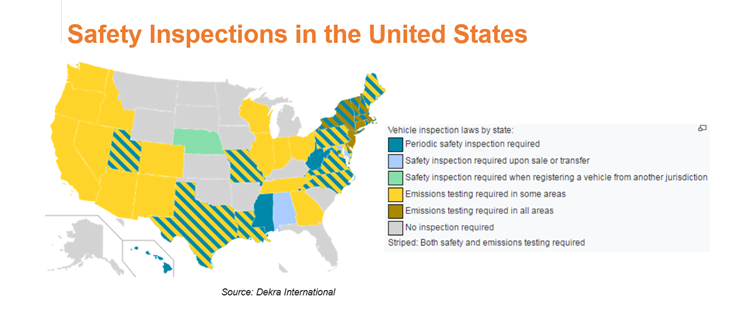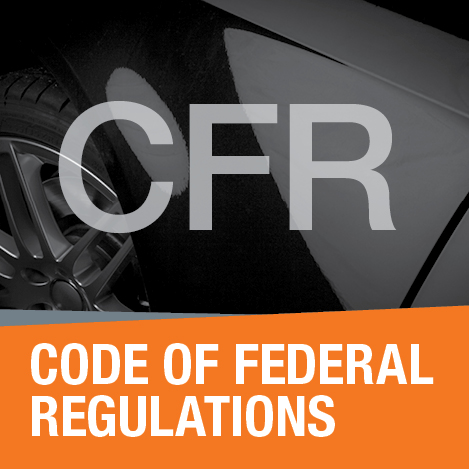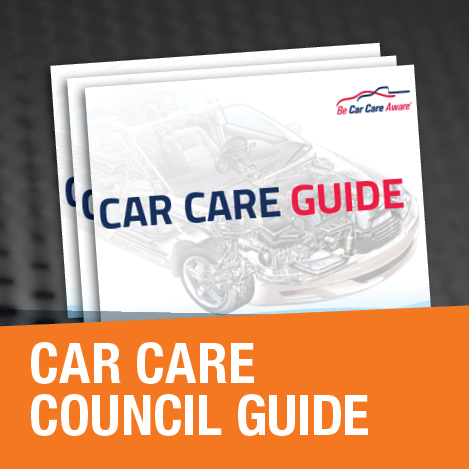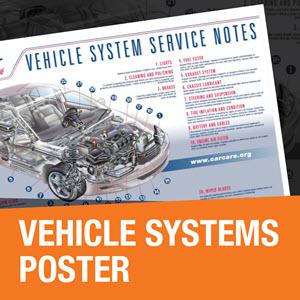
Vehicle Safety Inspections
Vehicle safety inspections save lives and improve vehicle reliability. The average age of vehicles is 11.9 years and continues to rise – cars are lasting longer. This economical value is beneficial to the consumer only if the vehicle is operating at or near manufacturers recommended specifications. As the vehicle ages, components reach their end of useful service life. Inspections also promote jobs and produces a productive workforce throughout the entire supply chain of the aftermarket. Inspections also promote consumer awareness of proper vehicle maintenance.
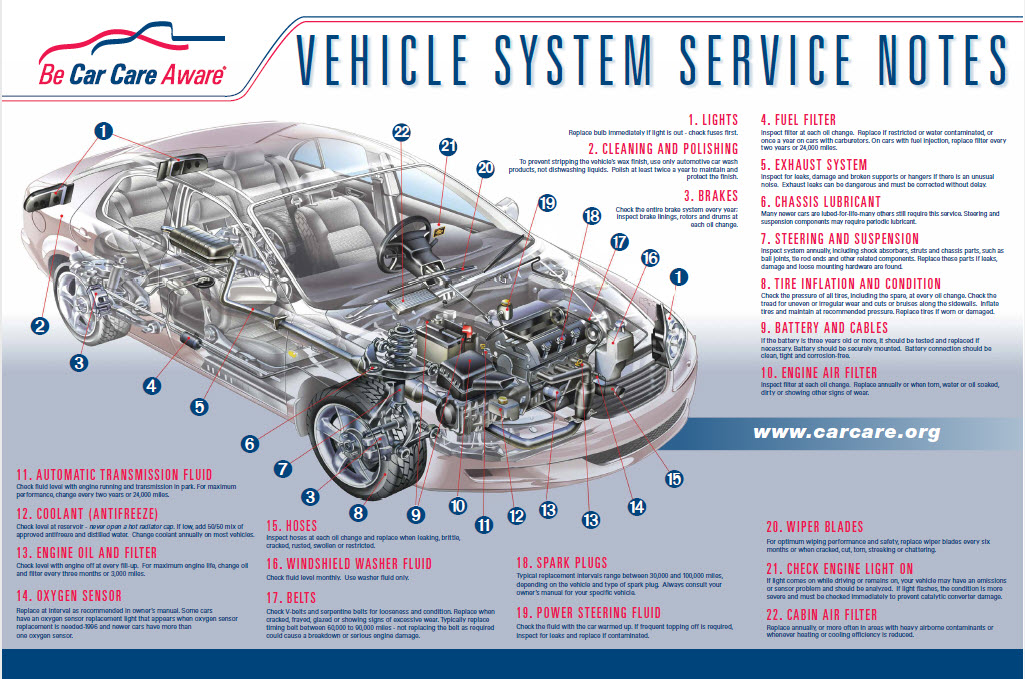
Safety inspections ensure that all cars on the road adhere to a “minimum safety standard,” particularly when it comes to components such as steering, suspension, brakes and tires. Why? Because vehicle components are key to safety: according to the National Highway Safety Administration, 35% of all motor vehicle crashes can be attributed to a vehicle component’s failure, particularly, tires or wheels. Another 22% are related to brakes. Consider that as vehicles age, their failure rates increase. Vehicles manufactured in 2009 or earlier have a 29% chance of a component failure. Knowing that the average age of vehicles today is 11.9 years and getting older (Source: 2021 Auto Care Factbook), that should be enough to reasonably be concerned about keeping vehicle inspections mandatory and current to ensure the safety of the motoring public.
Simply put, vehicle safety inspections save lives. How do we know this? We know from the data. Here are just a few key examples:
- In Virginia, all registered vehicles undergo an annual
safety inspection during which technicians confirm operating standards
for 21 vehicle systems or elements, including brakes, tires, and safety
equipment such as turn signals. Latest data from 2018 show: 8,209,716
vehicles were inspected and 1,634,740 vehicles failed due to critical
safety defect(s) Source: Virginia State Police
- South Carolina and Mississippi eliminated their safety
inspection program in 1995 and 2015 respectively. The result? The two
states had the highest traffic deaths per 100,000 in population in
America at 20.4 and 22.2 fatalities. In the 11 years after eliminating
the program, South Carolina experienced a 29.04% increase in traffic
fatalities. The year before eliminating the safety program, there were
607 traffic fatalities in Mississippi. The year after, traffic-related
fatalities increased to 677.
- Since eliminating its program in 2000, Florida has
experienced a 63.4% increase in its total traffic crashes. In 2000,
Florida had 2920 traffic related accidents. The year after the program
was eliminated, that number increased 21% to 3,533.
- A study conducted by the University of Texas in 2018 concluded that vehicle defects are twice as likely to result in a fatality as crashes without defects. For real-world examples of safety inspections, the issues they identify and additional study data, view our presentation, The Case for Vehicle Safety Inspections.
New tech in vehicles such as ADAS, connected and automated vehicles, embedded software and telematics create challenges with safety inspections as well as opportunities. While these technologies enable driver safety, comfort and convenience, they still require maintenance to ensure safe operation. An overview of these technologies can be found on our emerging technologies page and we are actively working to standardize the repair and calibration of these technologies to ensure the safety of drivers and access to these technologies for industry technicians. The connected car requires regular inspection, review and calibration to ensure systems are properly aligned and functioning properly.

For questions regarding emerging vehicle technologies such as ADAS, please contact Joe Register.

